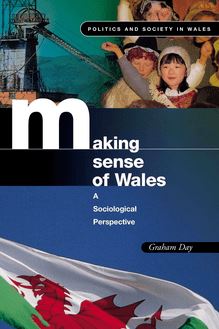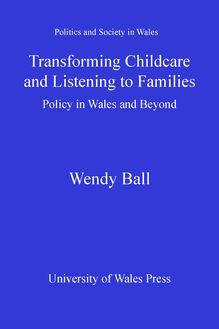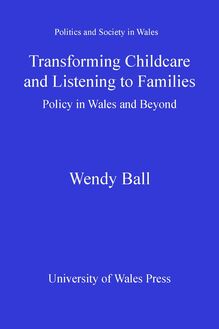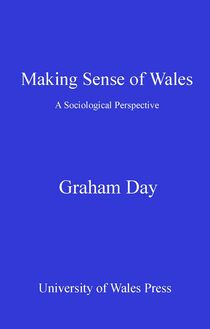-
 Univers
Univers
-
 Ebooks
Ebooks
-
 Livres audio
Livres audio
-
 Presse
Presse
-
 Podcasts
Podcasts
-
 BD
BD
-
 Documents
Documents
-
- Cours
- Révisions
- Ressources pédagogiques
- Sciences de l’éducation
- Manuels scolaires
- Langues
- Travaux de classe
- Annales de BEP
- Etudes supérieures
- Maternelle et primaire
- Fiches de lecture
- Orientation scolaire
- Méthodologie
- Corrigés de devoir
- Annales d’examens et concours
- Annales du bac
- Annales du brevet
- Rapports de stage
La lecture à portée de main
Vous pourrez modifier la taille du texte de cet ouvrage
Découvre YouScribe en t'inscrivant gratuitement
Je m'inscrisDécouvre YouScribe en t'inscrivant gratuitement
Je m'inscrisEn savoir plus
Vous pourrez modifier la taille du texte de cet ouvrage
En savoir plus

Description
Sujets
Informations
| Publié par | University of Wales Press |
| Date de parution | 30 juillet 2002 |
| Nombre de lectures | 0 |
| EAN13 | 9781783163939 |
| Langue | English |
Informations légales : prix de location à la page 0,0450€. Cette information est donnée uniquement à titre indicatif conformément à la législation en vigueur.
Extrait
POLITICS AND SOCIETY IN WALES
Making Sense of Wales
POLITICS AND SOCIETY IN WALES SERIES
Series editor: Ralph Fevre
Previous volumes in the series:
Paul Chaney, Tom Hall and Andrew Pithouse (eds), New Governance - New Democracy? Post-Devolution Wales
Neil Selwyn and Stephen Gorard, The Information Age: Technology, Learning and Exclusion in Wales
The Politics and Society in Wales Series examines issues of politics and government, and particularly the effects of devolution on policy-making and implementation, and the way in which Wales is governed as the National Assembly gains in maturity. It will also increase our knowledge and understanding of Welsh society and analyse the most important aspects of social and economic change in Wales. Where necessary, studies in the series will incorporate strong comparative elements which will allow a more fully informed appraisal of the condition of Wales.
POLITICS AND SOCIETY IN WALES
Making Sense of Wales
A SOCIOLOGICAL PERSPECTIVE
By
GRAHAM DAY
Published on behalf of the Social Science Committee of the Board of Celtic Studies of the University of Wales
Graham Day, 2002 Cover photograph Patricia Aithie, Ffotograff Cover design: Olwen Fowler
British Library Cataloguing-in-Publication Data. A catalogue record for this book is available from the British Library.
ISBN: 0-7083-1771-5 eISBN: 978-1-78316-393-9
All rights reserved. No part of this book may be reproduced, stored in a retrieval system, or transmitted, in any form or by any means, electronic, mechanical, photocopying, recording or otherwise, without clearance from the University of Wales Press, 10 Columbus Walk, Brigantine Place, Cardiff, CF10 4UP. Website: www.wales.ac.uk/press
The right of Graham Day to be identified as author of this work has been asserted by him in accordance with the Copyright, Designs and Patents Act 1988.
Series Editor s Foreword
The Politics and Society in Wales Series provides an opportunity for the publication of social-scientific descriptions and analyses of Welsh society. Graham Day s book reminds us that such work was undertaken long before the series was conceived. Social scientists have been making sense of Wales for half a century or more. They have even, from time to time, put on courses for undergraduates and postgraduates to help them do the same thing. Day thinks, quite rightly, that it is time to take stock and appraise all of this effort. The result is a marvellous work which shows us how far we have come and how we must approach our social science, and particularly our sociology, in the future.
Sociology is the main discipline represented here but other disciplines like geography, regional planning and anthropology have clearly made very important contributions. Many of the concepts and theories that have been used to make sense of Wales were developed elsewhere, and an appraisal of social-scientific studies of Welsh society cannot help but discuss some of the more important intellectual influences on social science in the second half of the twentieth century. Yet Day points out that the application of these concepts and theories has not always been a straightforward matter since it is not self-evident that there is a Welsh society for social scientists to analyse and describe. He reminds us that we can learn much about sociology by thinking about the way a Welsh society can be constructed for analysis and description.
A great deal of Making Sense of Wales is concerned with social and economic change. Day is interested in all the conscious efforts that have been made to bring about change through planning, policy and constitutional innovation but he is particularly concerned with problems of economic development and the practical steps that have been taken to solve them. There is inevitably plenty of discussion here of coal and steel, but Day is somewhat unusual in combining an interest in industrial change with a lifelong interest in rural sociology. He tells us how change in the countryside has been discussed and analysed in the same authoritative way he approaches the discussion of social and economic change in industrial Wales. Of course economic development and planning are never far from view in the countryside either but the discussion of rural Wales also allows Day to introduce the themes of migration and language which figure so strongly in the second half of the book.
Day discusses in some detail all of the more contentious issues that have been debated in Wales in the last fifty years. He does this with some authority and with a very cool head. He gives us an informed but dispassionate discussion of debates about how far, and how well, the Welsh economy has been transformed at the end of the twentieth century. He also provides similarly dispassionate discussions of studies of language, culture and nationalism. By the end of the book these disparate strands have been woven together in a most helpful way. Day shows us that it makes little sense for us to treat issues such as nationalism and economic development as separate subjects. What Making Sense of Wales shows is that none of the things that interest us - questions of identity, political change, the fate of class, gender and ethnicity, the disappearance of community, prospects for prosperity - can be profitably studied in isolation. Of course it is easier to pursue these questions separately but the simple findings we come up with when we try to make sense of complex reality in this way may be thoroughly misleading.
What Day prescribes instead is a classical sociological approach - as practised by Max Weber for example - in which we must be prepared to use all of the available conceptual resources from sociology and, where necessary, other social sciences, together with the evidence, and especially the statistics, compiled by government and researchers. Making Sense of Wales provides a benchmark in two senses. Firstly, since it appraises the work done by those who dedicated their time and ingenuity to the study of Wales in the past fifty years or so it provides a summary of our current knowledge. Secondly, it shows us what sociology now has to do if it is to provide useful accounts of complex and difficult topics. For both of these reasons Making Sense of Wales will be the benchmark for studies of Welsh society for many, many years. Graham Day was the only person who could have written this work and he brings to it all the authority and insight born of twenty-five years of careful thinking and research on the subject. On behalf of everyone else who has ever tried to make sense of Wales, I express our gratitude to him for giving us this splendid book.
Ralph Fevre Cardiff, June 2002
Contents
Series Editor s Foreword
Acknowledgements
Introduction
1. Visions of Wales
2. Wales Remade? The Transformation of Economic Structures
3. An Ideal Research Site : Wales and the Problem of Development
4. Enclaves, Archipelagos and Regions: Rethinking the Regional Problem
5. Divided and Dividing Wales? Explorations in Geography and Class
6. Beyond the Basics
7. Rural Wales: The Sociological Account
8. Contemporary Rural Wales: Via Development to Dependence? 162
9. Debating the Transformation: A Welsh Economic Miracle?
10. Language, Culture and Nation: Wales in the Melting Pot
11. Nation, Nationalism and Ethnicity
Conclusion
References
Acknowledgements
The contribution made by the University of Wales Centre at Gregynog to the developments described in this book has been invaluable; over the years it has provided a relaxed venue for networking and debate. I would also like to take this opportunity to acknowledge my thanks to John Williams and the staff and students of the Department of Economic and Social History and Sociology at the University of Wales, Aberystwyth for the stimulation they provided during the department s too brief period of existence. I have particular debts to Gareth Rees, Dennis Thomas, Jon Murdoch and Andy Thompson. While their influence may be discernible at various points in what follows, they cannot be held responsible for what I have made of it. I am especially grateful to Pam and Dai Michael, Neil Evans and Andrew Thompson for their encouragement. They have helped me avoid some of the more egregious errors. Much as I would like to pass responsibility to them for the mistakes which remain, in accordance with the conventions, I fully accept that they are entirely my own. This book is dedicated to Daphne, with love, and the deepest appreciation for all her patience.
Introduction
The opening of a new millennium seems to have thrown British intellectuals into a turmoil of introspection. Hardly a day passes without the publication of some new book, television series or newspaper article in which the nature and direction of British society, the state of the United Kingdom, and what it means to be British or to belong to one of the constituent nationalities of these islands, is put under scrutiny (Paxman, 1999; Marr, 1999; Nairn, 2000; Chen and Wright, 2000). These discussions mingle millennial angst with anxieties about place in the world, and more local concerns to do with the impact of political devolution, and European integration. Radically different views, each capable of gathering supportive evidence, are put forward: for example, on the one hand Britain is viewed as a tolerant society, open to new sentiments of multiculturalism, prepared to cede sovereignty to gain the rewards of closer harmony with Europe, and eager to embrace the gifts of globalization - a standpoint endorsed strongly by Prime Minister Tony Blair. On the other hand, in the light of events surrounding the murders of Stephen Lawrence and other victims of racial violence, and its responses to migration pressures, Britain is castigated for being riddled with institutional racism, and latent xenophobia. As a state, its boundaries seem to be becoming simultaneously more porous -
-
 Univers
Univers
-
 Ebooks
Ebooks
-
 Livres audio
Livres audio
-
 Presse
Presse
-
 Podcasts
Podcasts
-
 BD
BD
-
 Documents
Documents
-
Jeunesse
-
Littérature
-
Ressources professionnelles
-
Santé et bien-être
-
Savoirs
-
Education
-
Loisirs et hobbies
-
Art, musique et cinéma
-
Actualité et débat de société
-
Jeunesse
-
Littérature
-
Ressources professionnelles
-
Santé et bien-être
-
Savoirs
-
Education
-
Loisirs et hobbies
-
Art, musique et cinéma
-
Actualité et débat de société
-
Actualités
-
Lifestyle
-
Presse jeunesse
-
Presse professionnelle
-
Pratique
-
Presse sportive
-
Presse internationale
-
Culture & Médias
-
Action et Aventures
-
Science-fiction et Fantasy
-
Société
-
Jeunesse
-
Littérature
-
Ressources professionnelles
-
Santé et bien-être
-
Savoirs
-
Education
-
Loisirs et hobbies
-
Art, musique et cinéma
-
Actualité et débat de société
- Cours
- Révisions
- Ressources pédagogiques
- Sciences de l’éducation
- Manuels scolaires
- Langues
- Travaux de classe
- Annales de BEP
- Etudes supérieures
- Maternelle et primaire
- Fiches de lecture
- Orientation scolaire
- Méthodologie
- Corrigés de devoir
- Annales d’examens et concours
- Annales du bac
- Annales du brevet
- Rapports de stage









